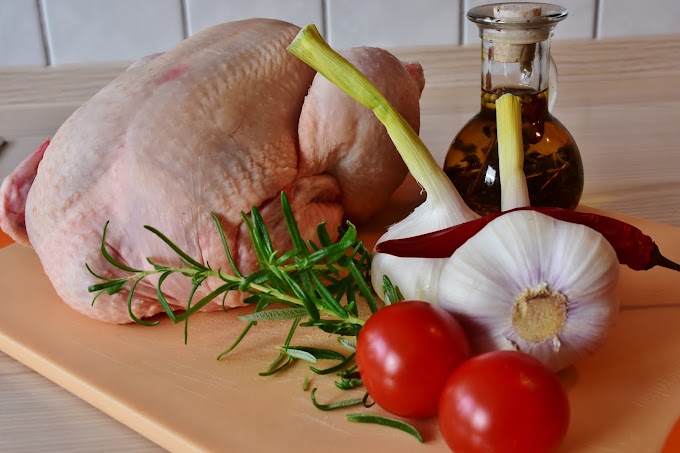Olive oil- Classification, Grades, Benefits & Use
In today's article I am explaining Olive oil, it's grade, classification, Health benefits and storage. I have seen many people confused while buying olive oil in supermarkets and randomly selecting olive oil brand. Hope this article may help you to choose the best olive oil simply by reading the label on olive oil bottle and have some knowledge on Olive oil.
Olive oil is pressed from olives. People have been making oil from olives for as long as 5,000 years according to archeological evidence. Today olives are grown and processed into Spain, Italy, and Greece. Olive oil has a wide range of flavours and fragrances. Considered the best of all oils, it is the traditional oil for kings, bishops, and temples in western culture/Mediterranean cuisine.
Olives are produced by olive trees which are very hardy, drought, disease and fire resistant. Olives have a sweet fleshy layer outside and a small seed inside with a bitter taste. They flourishes in Mediterranean-type climates. Spain accounts for almost half of global olive oil production while consumption is highest in Greece, followed by Italy and Spain.
There are different grades of olive oil- extra virgin, virgin, pure, pomace, and lite. Extra Virgin & Virgin Olive oil has no chemical treatments, Refined has been chemically treated while Pomace has been extracted by solvents and heat. The colours of olive oil vary due to processing. Green oils are from olives picked early in the harvest while Gold oils are from later harvest with the difference being a shorter shelf life of Green oils by 3/4 months.
TYPES OF OLIVE OIL
1. Extra Virgin olive oil
Virgin olive oils are obtained from the fruit of the olive tree solely by mechanical/physical pressing (First press means that this oil came from the first press of the olives. Cold means no additional heat is applied during pressing).They don't undergo any treatment other than washing, decanting, centrifuging and filtering and consists of Extra Virgin olive oil, virgin olive oil. Extra Virgin Olive Oil has a maximum acidity of 1% while Virgin Olive Oil has a maximum acidity of 2%.
Extra Virgin olive oils are least processed and are derived from the first pressing of olives. It contains high amounts of nutrients and vitamins and no additives with light, delicate,superior taste. This oil is highly valued for its perfect balance of flavour, aroma, colour and acidity level and is mostly used for cooking, as topping on salads, in dressings or as a dipping oil for breads.
Chef note: Extra Virgin Olive Oil needs to be cooked very carefully because it can easily loose its flavour with heat. Save the most expensive, high quality extra virgin olive oil for drizzling over cooked dishes just before serving. Extra virgin olive oil is an entirely natural product and is more expensive to produce. Extra virgin olive oil has much better taste than the refined mixes.
2. Virgin Olive Oil
They are Produced from the second processing of olives. It has a good taste and is used for cooking, as dressings, salads and more. Virgin means mechanical extraction. The oil or juice is extracted by machines with no chemicals used in the process.
3. Pure Olive Oil
Pure olive oil is a blend of refined and virgin olive oil. It has lower nutrient content and is less expensive. It Cannot be used for dressings, but can be used for high temperature cooking.
The word refined is often associated with increased purity, but in the case of olive oil it means that the taste and acidity were altered by artificial means. Refined oils invariably start with lower quality olives, and suffer from a lack of the true taste of the olive. They undergo thermal and chemical treatments to reduce acidity, subjected to an extremely fine filtration process to remove any residual chemicals, and then fortified with a small amount of virgin or extra virgin oil to give them some flavour and colour. The refining process increases the smoke point to about 410ºF making this olive oil more suitable for high heat cooking and frying.
Chef note: 'Pure', 'Light', 'Extra Light', etc. are not olive oil classifications. They are mixes of refined or pomace with virgin olive oil.
4. Pomace Olive Oil
Pomace oil is the Lowest grade of olive oil which is produced from the residual oil left in the olive's pomace. It is then, Blended with varying amounts of virgin olive oil to make it acceptable for consumers. This oil is mainly used for high temperature cooking. Pomace oil is rarely found in markets, but is used in restaurant cooking. It is fit for consumption but not very tasty. Pomace is produced by a heat and chemical process from the waste of the virgin olive oil after the virgin olive oil is extracted.
5. Lite Olive Oil
Lite olive oil is poorer quality olive oil which contains very tiny amounts of virgin oils but the same amounts of calories and fats as all olive oils. Lite olive oils are refined olive oils that have not been fortified with virgin or extra virgin oil, and therefore lack any taste or colour. This type of oil can be used for baking or other forms of cooking where you don't want the oil to flavour the food at all.
How to select the right olive oil for your cooking?
Many people gets confused on selecting the right olive oil as there are wide varieties available in market.
- Unfiltered oils are great for salad dressings, dipping, or to drizzle on soups or pastas. They should never be used for cooking, because the sediments reduce the smoke point to a very low level.
- Use virgin or extra virgin oil for dipping, toast, to finish sauces, anywhere you will be able to taste the oil as you will get maximum flavour from virgin olive oil.
- The rule of thumb is to only use expensive virgin or extra virgin oils in cold dishes or right at the end of cooking, you can also use them to sauté. They cost more, but Keep in mind that these oils have a relatively low smoke point, so keep an eye on them.
- Refined or light olive oils are great for baking. Their lack of flavour is actually a plus in baked goods, and you get many of the health benefits of unprocessed oils.
- use olive oil for deep frying - its higher smoke point (410 degrees) and less intense flavour make it perfect for this type of cooking.
Chef note: Most olive oils are filtered to remove sediments that occur naturally during pressing. Some, however, retain the sediment in the final product. This is thought by many to strengthen and improve the flavour of the oil. The sediments can go rancid over time, so use unfiltered oils within 3 - 6 months of purchase.
Storing Olive Oil
Keep olive oil tightly sealed in a cool, dry, dark place to resist rancidity. Heat, air, light and time are the enemies of olive oil. If it's over six months old it can lose up to 40% of its healthy, antioxidants benefits so beware if you are seeing discount and offers in olive oil in bhatbhateni. It may be old stock of olive oil.
Olive oil does not improve with age, so use it within 3 months. It can be refrigerated but there are different opinions about this. Some claim refrigeration can harm its flavour and others claim it may need refrigeration. Refrigeration will cause the oil to turn solid, but then return to a liquid form when it's removed. I will say taking olive oil in and out of the refrigerator causes it to lose its uniqueness, so don't do it.
Health Benefits of Olive Oil
- Olive oil is easy to digest and helps our bodies assimilate vitamins and minerals. It aids the digestive system by stimulating the gallbladder. Olive oil is cholesterol free and stimulates cellular growth, speeds the healing process.
- Olive oil Reduces LDL, (bad cholesterol,) promotes HDL, (good cholesterol); lowers risk of heart disease. Olive oil discourages clogging of arteries. Good quality olive oil is rich in vitamins A, B1, B2, C, D, E and K.
- Renews skin cells and adds shine to dull, dry or frizzy hair. However, Olive Oil is a heavy oil, so it doesn't absorb easily into the skin, and it can also be a breeding ground for bacteria, which can cause clogged pores and acne.
- Olive Oil prevents Cancer.
- Olive Oil lowers blood pressure
- Olive oil boosts Hearts Health. Heart failures are a rare thing found among those who consume olive oil. For centuries, olive oil has been a major player in the low incidence of heart disease among Mediterranean populations.
- Olive Oil leads to weight loss
- The main reason olive oil is healthy is because it is rich in healthy monounsaturated fatty acids. About 75% of that monounsaturated fat is oleic acid, which is very stable even at high temperatures.
- Organic extra virgin olive oil also contains high levels of antioxidants like phenols, and vitamins E and A, which fight free radicals and thus prevent premature ageing.
Extra note:
The main thing to keep in mind is that olive oil has a low smoke point. This means the oil will start to smoke at high temperatures. If you have ever over-heated olive oil in a pan, you know how it can fill your kitchen with smoke and will destroy the flavour of food.

























0 Comments
If you have any doubts , please let me know